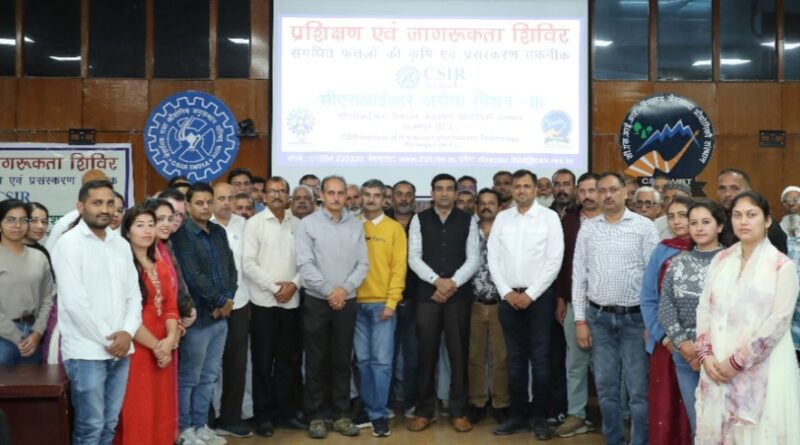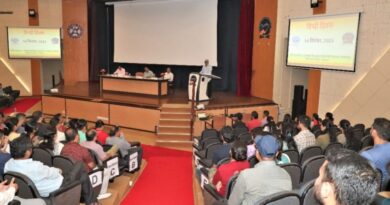CSIR IHBT helping Jammu farmers to turn challenges into fragrant profits
For farmers in the Jammu region, daily struggles like monkey raids, peacock damage, and unpredictable rains make traditional farming a tough way to make a living. But a recent program at the CSIR-Institute of Himalayan Bioresource Technology (CSIR-IHBT) in Palampur is offering a fragrant and profitable way forward.
Held on October 6-7, 2025, the two-day training session introduced over 30 farmers from Jammu to the world of aromatic and high-value crops. These farmers, who traditionally grow wheat, maize, and turmeric mainly for their own families, learned how diversifying their fields could be the key to a more secure and sustainable income.
A Commitment to Farmer Success
Dr. Sudesh Kumar Yadav, Director of CSIR-IHBT, opened the program by reaffirming the institute’s commitment to the farmers of the northwestern Himalayas. He promised them full scientific and technical support to enhance their livelihoods through sustainable cultivation and value addition.
The Right Crops for a Brighter Future
The training provided clear, practical advice. Dr. Rakesh Kumar, the Chief Scientist, highlighted that crops like damask rose, lemongrass, tulsi, and mint are perfectly suited for the challenges of the Jammu region. “These crops are not just resilient; they are lucrative,” he explained. They thrive in rainfed conditions, are naturally resistant to pests, and their high-value oils are in constant demand by industries ranging from aromatherapy and cosmetics to food and pharmaceuticals.
He specifically encouraged farmers to use their barren or underperforming land for these plants, which can boost profitability by two to three times compared to traditional crops. This is especially promising given that the Indian essential oil market is projected to grow significantly in the coming years.
Hands-On Learning for Real-World Impact
The program went beyond theory. Farmers received insights into high-yielding plant varieties developed by the institute and were given a practical look at the entire process—from using distillation units to extract precious essential oils to understanding market linkages. They also learned about post-harvest value addition, Shiitake mushroom cultivation, and integrated farming approaches that can create new rural entrepreneurs.
The Zonal Agriculture Officer from Jammu, who helped organize the visit, praised CSIR-IHBT’s efforts and urged participants to embrace this diversified farming for better resilience and income.
The event concluded with an energetic interactive session, where farmers expressed a keen interest in adopting these new crops. The program successfully planted a seed of hope, showing Jammu’s farmers how to transform their challenges into a more fragrant and prosperous future.



